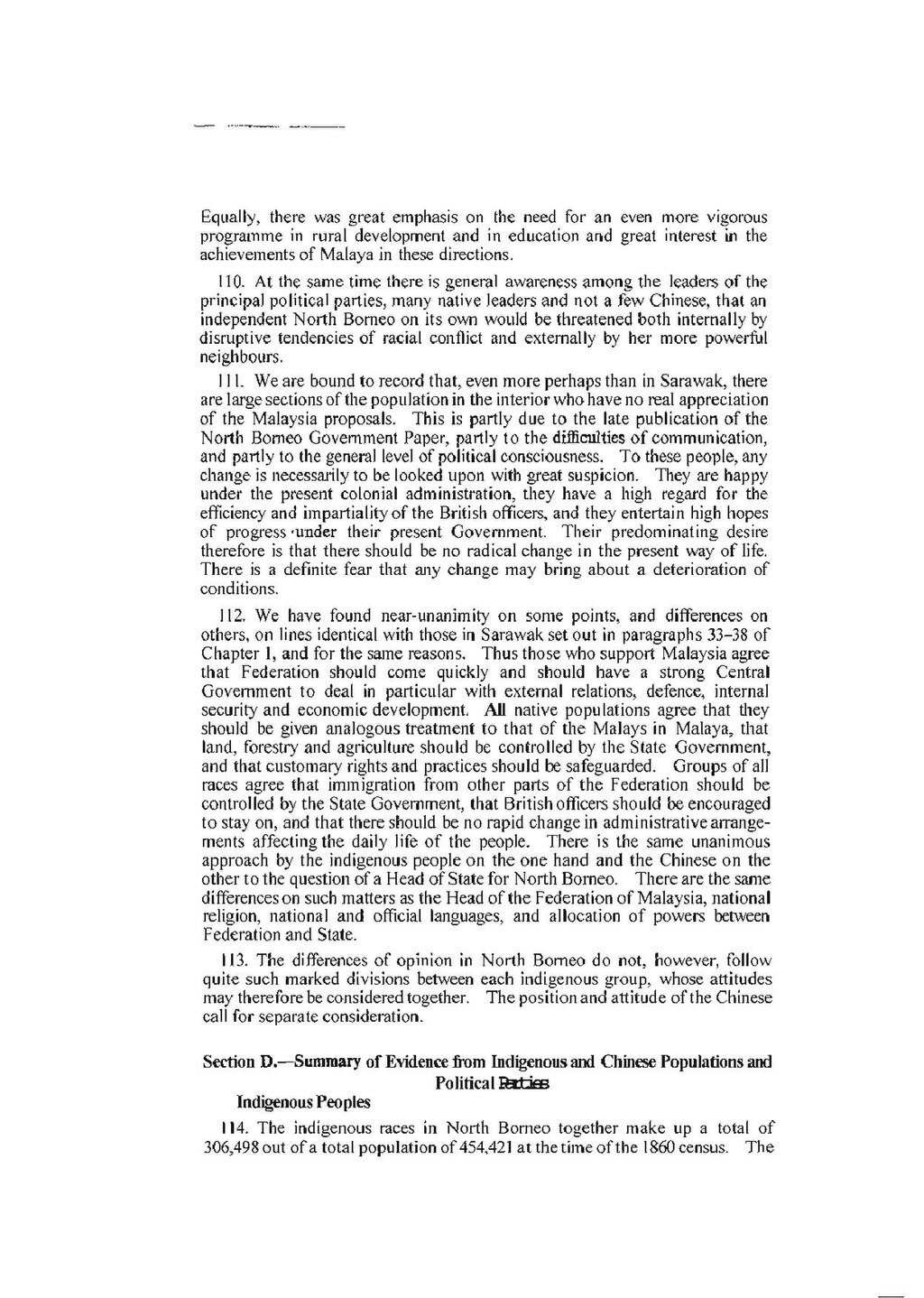Equally, there was great emphasis on the need for an even more vigorous programme in rural development and in education and great interest in the achievements of Malaya in these directions.
110. At the same time there is general awareness among the leaders of the principal political parties, many native leaders and not a few Chinese, that an independent North Borneo on its own would be threatened both internally by disruptive tendencies of racial conflict and externally by her more powerful neighbours.
111. We are bound to record that, even more perhaps than in Sarawak, there are large sections of the population in the interior who have no real appreciation of the Malaysia proposals. This is partly due to the late publication of the North Borneo Government Paper, partly to the difficulties of communication, and partly to the general level of political consciousness. To these people, any change is necessarily to be looked upon with great suspicion. They are happy under the present colonial administration, they have a high regard for the efficiency and impartiality of the British officers, and they entertain high hopes of progress under their present Government. Their predominating desire therefore is that there should be no radical change in the present way of life. There is a definite fear that any change may bring about a deterioration of conditions.
112. We have found near-unanimity on some points, and differences on others, on lines identical with those in Sarawak set out in paragraphs 33-38 of Chapter 1, and for the same reasons. Thus those who support Malaysia agree that Federation should come quickly and should have a strong Central Government to deal in particular with external relations, defence, internal security and economic development. All native populations agree that they should be given analogous treatment to that of the Malays in Malaya, that land, forestry and agriculture should be controlled by the State Government, and that customary rights and practices should be safeguarded. Groups of all races agree that immigration from other parts of the Federation should be controlled by the State Government, that British officers should be encouraged to stay on, and that there should be no rapid change in administrative arrangements affecting the daily life of the people. There is the same unanimous approach by the indigenous people on the one hand and the Chinese on the other to the question of a Head of State for North Borneo. There are the same differences on such matters as the Head of the Federation of Malaysia, national religion, national and official languages, and allocation of powers between Federation and State.
113. The differences of opinion in North Borneo do not, however, follow quite such marked divisions between each indigenous group, whose attitudes may therefore be considered together. The position and attitude of the Chinese call for separate consideration.
Section D.—Summary of Evidence from Indigenous and Chinese Populations and Political Parties
Indigenous Peoples
114. The indigenous races in North Borneo together make up a total of 306,498 out of a total population of 454,421 at the time of the 1860 census. The
